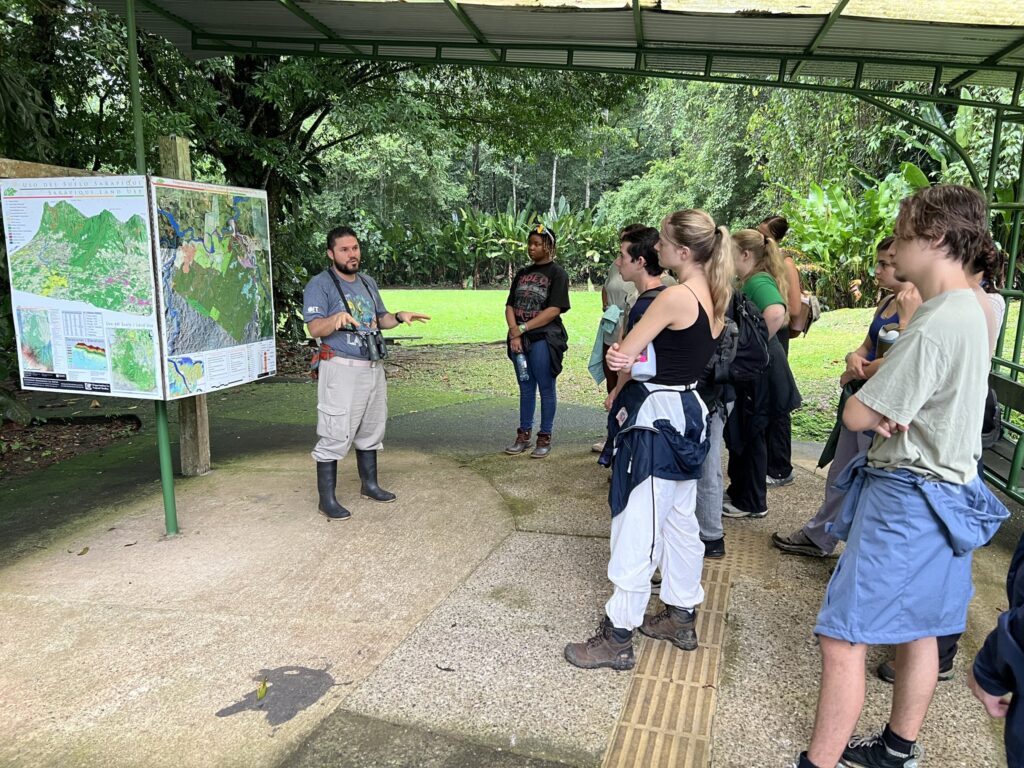
This seven-week study abroad in Costa Rica includes six classes and enables students to complete the 15-credit Minor in *Tropical Conservation and Sustainable Development in one summer. This minor is available to all students across the university, with no course prerequisites. Most courses are taught at the 3000 level, and a minimum Sophomore-level standing is required by the time of travel. There are two three-week sessions (with two classes each) hosted on the CATIE campus, with a nine-day travel course in between, during which students visit a variety of Costa Rica’s famous national parks and protected areas. Students must enroll in all six classes for the full seven weeks.
The minor is interdisciplinary and collaborative, taught by Auburn University faculty from four colleges: the Colleges of Forestry, Wildlife and Environment, Agriculture, Human Sciences, and the University College of Sustainability Studies. Additionally, faculty and researchers from our partner and host institution, CATIE (Tropical Agricultural Research and Higher Education Center), enrich our experience with local knowledge and expertise and provide support for field classes.
Review the curriculum model for this minor.
Quick Facts:
- 7 weeks
- 6 courses
- 15-credit-hour minor
- No prerequisites
- Open to all students with sophomore-level standing at the time of travel
Costa Rica / Multi-city Study Abroad
Costa Rica is a small, vibrant country in Central America, renowned for its stunning biodiversity, ecotourism, and diverse array of adventure activities. It boasts major life zones including lush cloud forests, tropical dry forests, mangroves, pristine beaches along both the Pacific and Caribbean coasts, and active volcanoes. The country is renowned for its national parks and conservation efforts, which protect a diverse range of ecosystems, plant species, and wildlife, including sloths, howler monkeys, jaguars, poison dart frogs, and flamboyant birds such as the resplendent quetzal, scarlet and green macaws, and several species of toucan.
Costa Rica:
- One of the most biodiverse countries in the world.
- Gets 98% of its electricity from renewables.
- Has protected 25% of its land.
- It is renowned for its safety and high quality of life, with English widely spoken in tourist areas.
- The country’s motto, ‘Pura Vida,’ means “pure life” and reflects the laid-back and friendly people.
- And, of course, the country is world-renowned for its coffee.
Our host and partner, CATIE, is an academic center for innovation and sustainable development in topics related to agriculture, management, conservation, and the sustainable use of natural resources. CATIE is a gated campus near the town of Turrialba, in the striking mountains of Costa Rica. The campus features numerous dormitories and apartments, classrooms, research and computer labs, a cafeteria, and a club that includes a restaurant and swimming pool. CATIE has extensive working lands dedicated to agriculture and conservation, providing a near-campus setting for field classes.
Visit internationalprograms.auburn.edu to learn more!
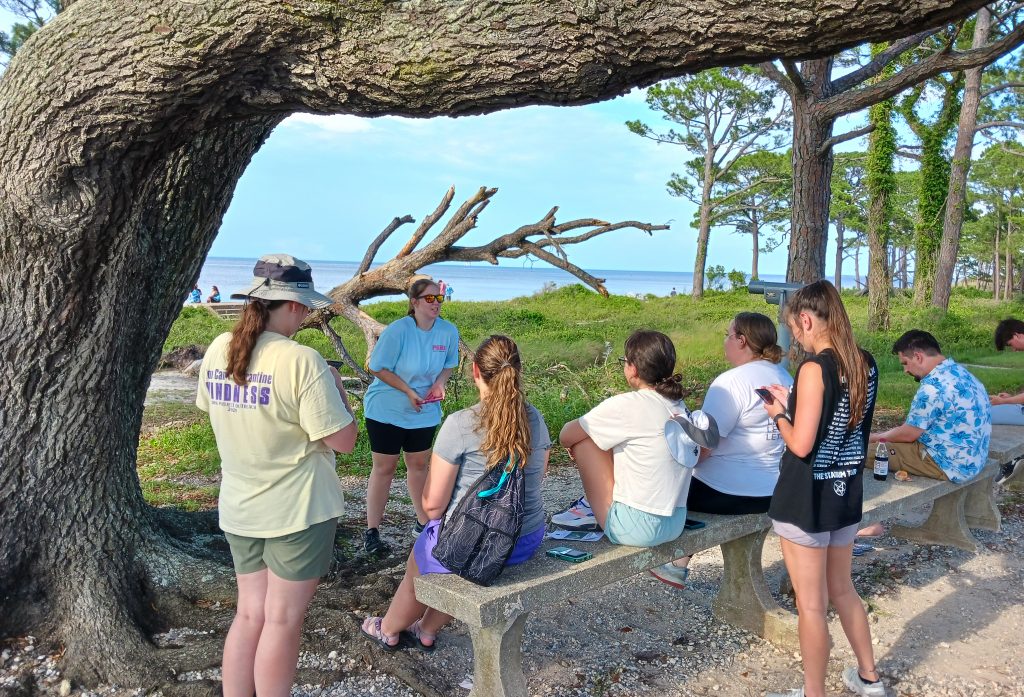

 Conservation social sciences are a subset of traditional social science disciplines that focus on conservation and environmental management. Each social science provides a different lens to understand our relationship with the environment. A
Conservation social sciences are a subset of traditional social science disciplines that focus on conservation and environmental management. Each social science provides a different lens to understand our relationship with the environment. A 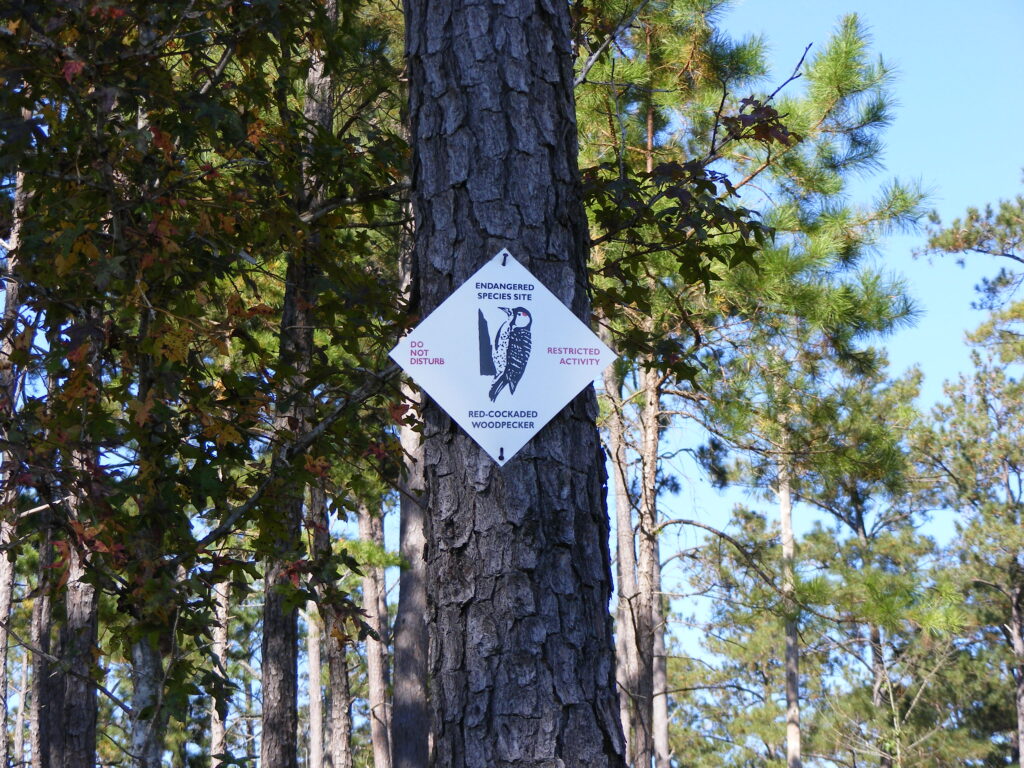
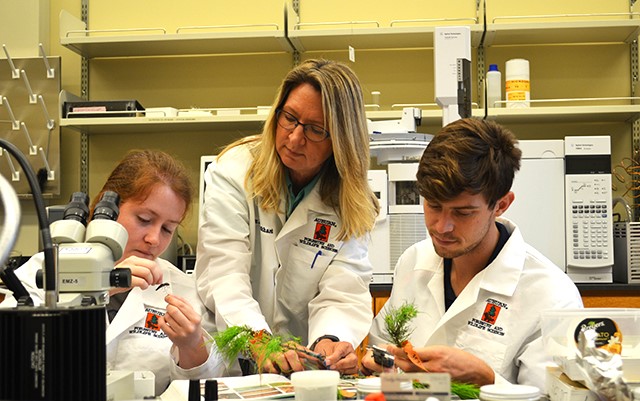
 This minor is available only to students in the forest emphasis of the forest engineering option of the biosystems engineering degree in the Samuel Ginn College of Engineering. Completion of the minor is required for Registered Forester eligibility in the State of Alabama.
This minor is available only to students in the forest emphasis of the forest engineering option of the biosystems engineering degree in the Samuel Ginn College of Engineering. Completion of the minor is required for Registered Forester eligibility in the State of Alabama.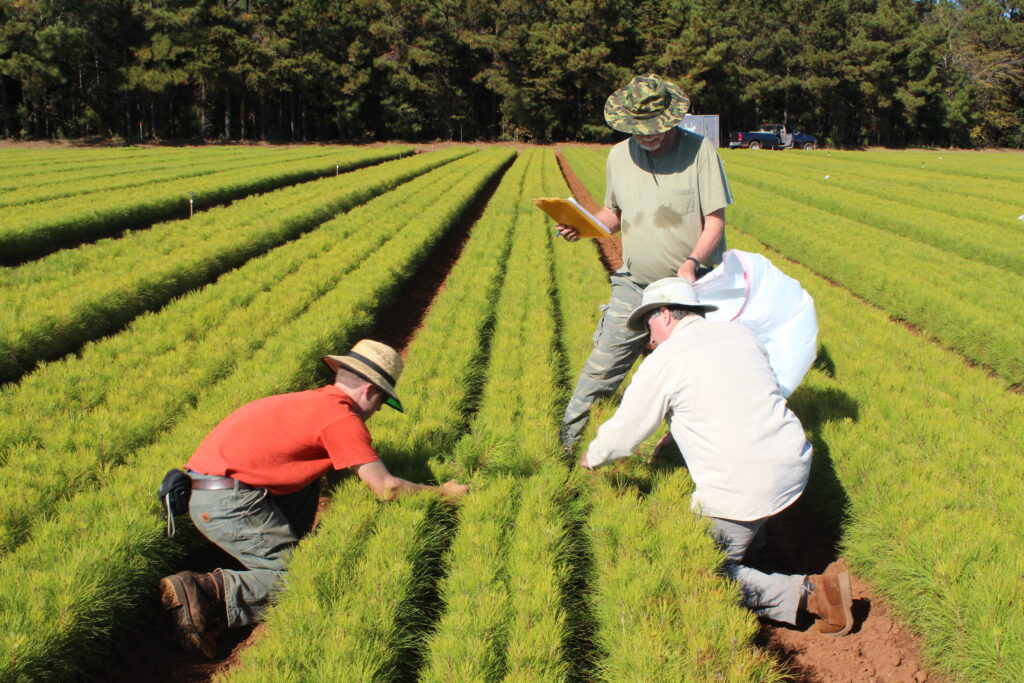
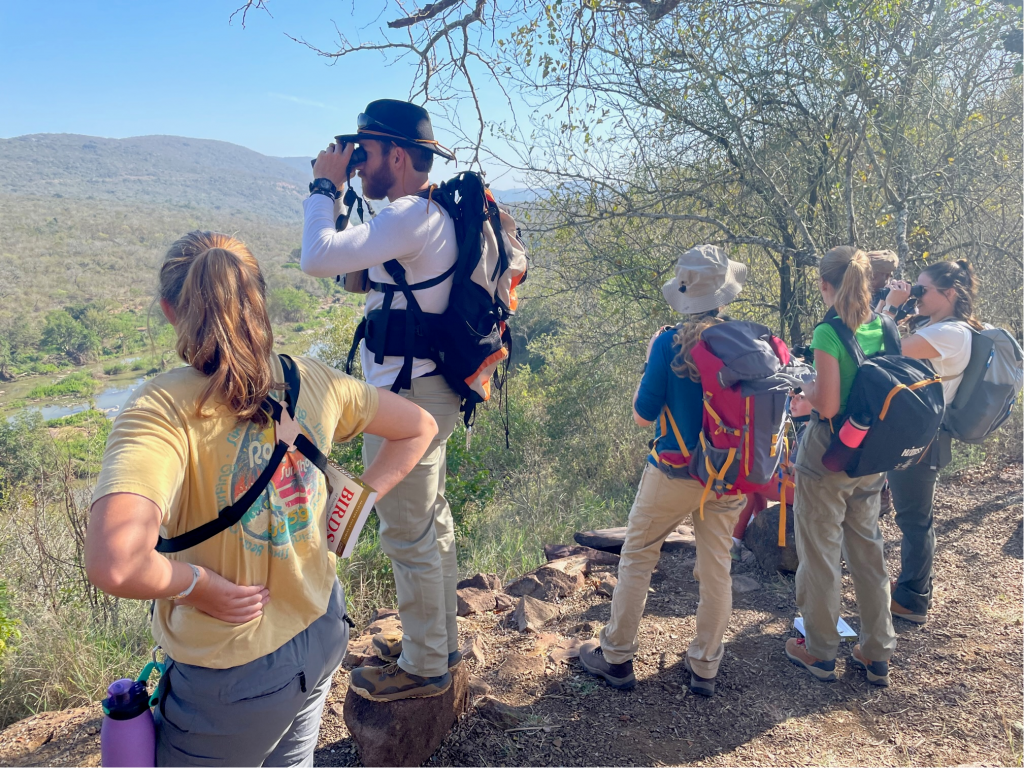
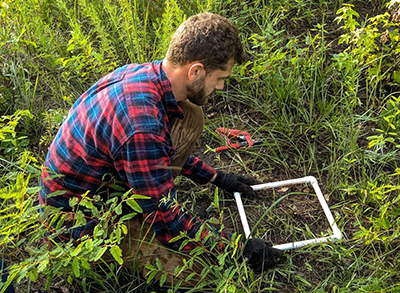
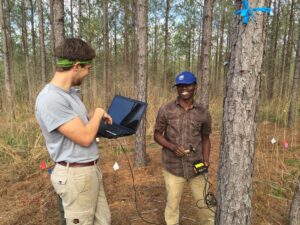 This undergraduate
This undergraduate 

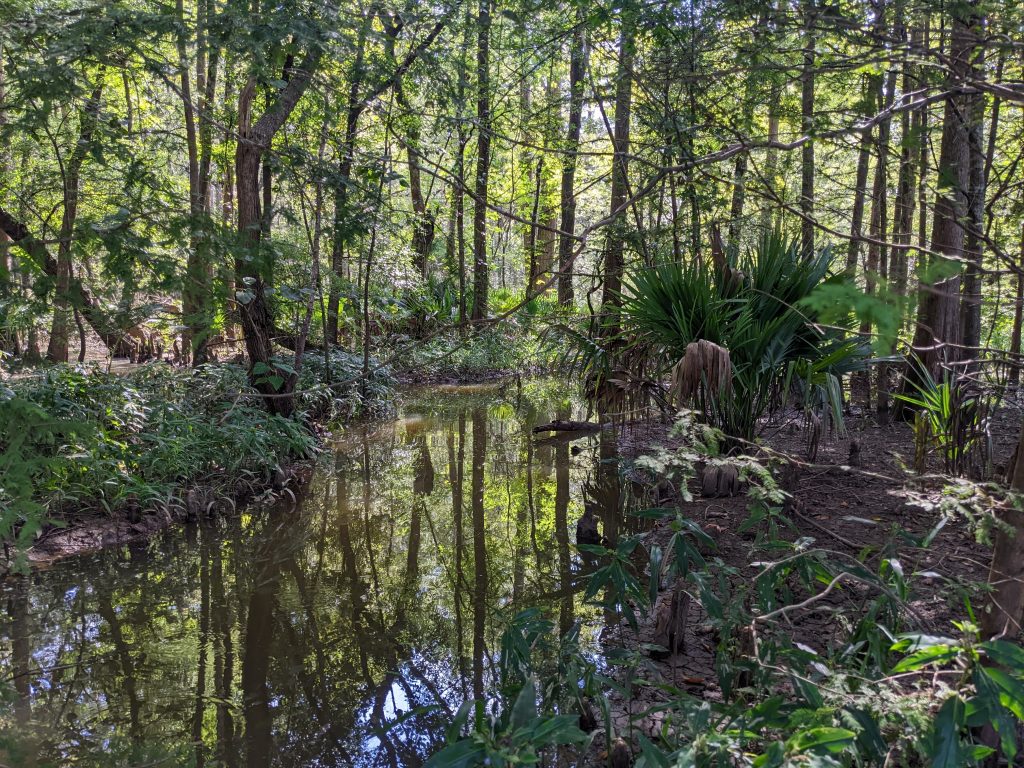 Freshwater is an essential resource but is becoming increasingly scarce in many parts of the world. Watershed science and management is an expanding field that involves managing the availability, quantity, and quality of water. Professionals in this field must have a firm understanding of the various natural processes and human activities that affect water. The Watershed Sciences minor is intended to provide background courses in natural and physical sciences along with upper-level courses on watershed management, wetland ecology, soil conservation, and electives that match student interests. This minor is for students seeking a career in watershed science, soil conservation, water management, or wetland ecology.
Freshwater is an essential resource but is becoming increasingly scarce in many parts of the world. Watershed science and management is an expanding field that involves managing the availability, quantity, and quality of water. Professionals in this field must have a firm understanding of the various natural processes and human activities that affect water. The Watershed Sciences minor is intended to provide background courses in natural and physical sciences along with upper-level courses on watershed management, wetland ecology, soil conservation, and electives that match student interests. This minor is for students seeking a career in watershed science, soil conservation, water management, or wetland ecology.







